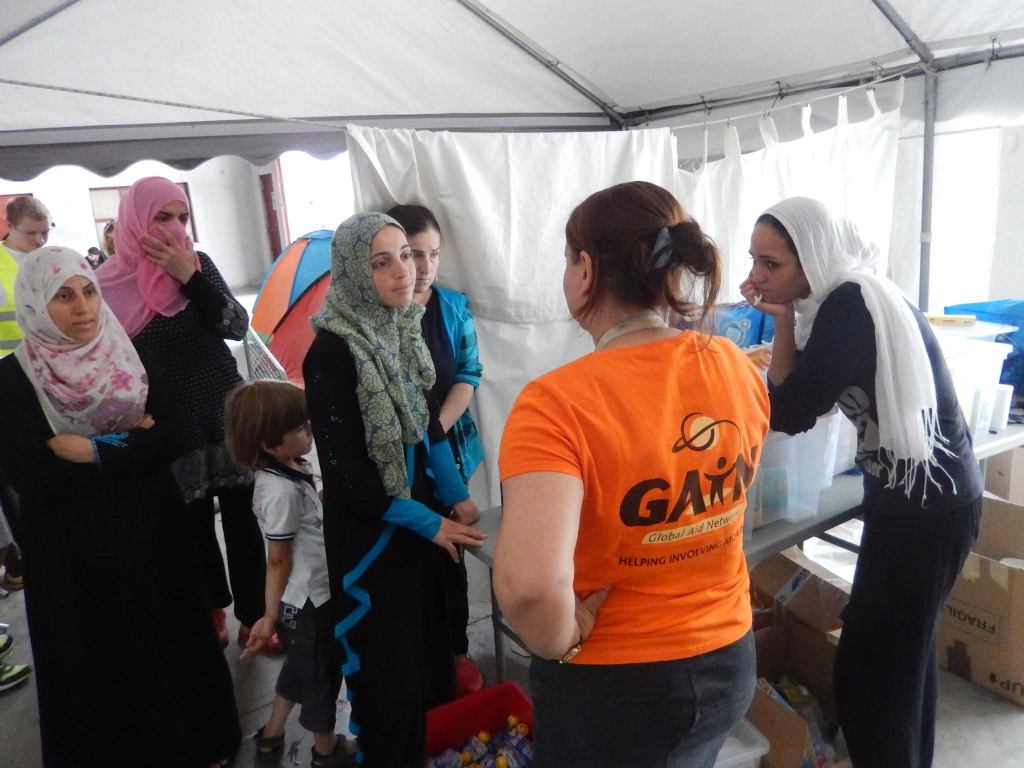In March 2016 Macedonia closed their border with Greece, leaving thousands of refugees stranded on the Greek side with no where to go. They couldn’t go forward, they couldn’t go around, they couldn’t go back. People congregated around the former entry checkpoint and an unofficial camp was formed, Idomeni. There were officially 10,000 people in the camp and more children than men and women. Idomeni became home for many families.
The Greek government moved everyone from the unofficial displacement camps to official government runs ones called ‘Hotspots’. On Monday 23rd May, the army informed the refugees they would be moved from Idomeni. At dawn the next day, the army moved in in riot gear. Journalists, NGOs and the public were banned from seeing the process. Our group from GAiN were volunteering in a Hotspot while this process was happening. Every day a few hundred more people were arriving at the Hotspot. Tensions started to run high as space became limited. Queues for food and toilets became longer. Less than a 1000 people became 1600 in a matter of days.
Eventually the Hotspot was full. Conditions were basic but liveable. Families live in big tents inside a huge warehouse with many tents spilling over outside. Bathrooms are portaloos and showers are outside taps. There are three meals delivered everyday, but not much else. In a sense the camps are a lot safer than Idomeni, as the army controls who goes in and out. In another sense, the camps are a lot less hopeful. With hardly any NGOs allowed access there are no activities for the children. So many people in such small area and all demanding resources creates tensions.
Our GAiN group were helping GAiN’s local partner, The Apostolic Church of Thessaloniki. They are one of the few NGOs allowed in the camp. We helped out with a mother and baby clinic they set up, entertaining the children and pitching in with food distribution. On our last day we visited Idomeni. I expected it to still look like a campsite but it had been completely cleared. Just traces were left that proved people had once lived there. Sunflower seed shells, cigarette butts and medical cards were ground into the earth by huge tractor wheels.
Despite the move into more permanent camps away from the border, the refugees are still hopeful about moving onwards towards their new life. Until then, the ebb and flow of family life continues.
If you would like to join on of these projects you can find out more about future project to Greece with GAiN Holland here.

